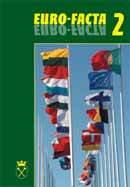Sztetl — zapomniana historia
Shtetl - Forgotten History
Author(s): Berenika KoźbiałSubject(s): Social Sciences
Published by: KSIĘGARNIA AKADEMICKA Sp. z o.o.
Keywords: Shtetl; Holocaust; Jewish Tradition
Summary/Abstract: This article considers the issue of multiculturalism in a specific example of small towns, namely the “shtetl”, which in the Yiddish language means town, a diminutive of ‘sztot’, meaning city. Shtetls were the main dwelling places of Ashkenazi Jews in Poland and in Russia, accounting for up to 70-80% of the population in these small urbanities. Th ese enclosed towns allowed for the preservation and thriving of Jewish culture and traditions, where Jews were in the majority and could freely shape the social-cultural ways of life of the town. The ethos of the pious Jews dominated, dictated by the teachings of the Torah and Talmud, but also by town authorities. However, these small towns were also the meeting point of many cultures: the mixing of Polish and Jewish, and often also Ukrainian and Roma. Taking into consideration the specific character of these towns, their traditional atmosphere and multicultural and multi-ethnic flavour, the author points to the weight of cultural heritage that these shtetls left behind. The article paints a picture of the shtetl; the history of its foundation, as well as the reconstruction and changes in these multicultural spaces. Specifics of life in the shtetl, as well as institutions, schooling, the intelligentsia, social and religious life are also discussed in order to capture the processes and experiences of life in the small multicultural town. The author focuses on the dialogic aspect of these multicultural towns and their cultural heritage, which underscores the ethnic and religious relations that thrived within them.
Journal: Euro-Facta
- Issue Year: 2010
- Issue No: 2
- Page Range: 167-191
- Page Count: 25
- Language: Polish

